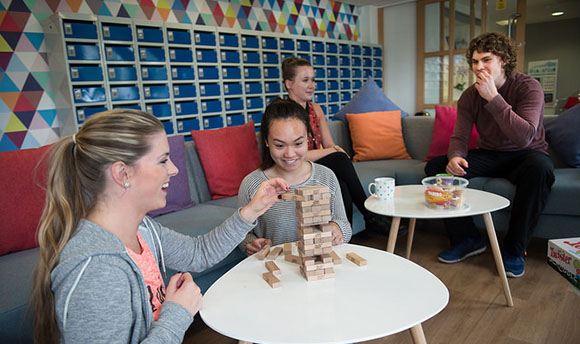A blog by Taiwo Gbadegesin, Lecturer in Psychology, Sociology, and Education, Queen Margaret University
Childhood poverty is a global challenge. My journey, from growing up in Nigeria to becoming an academic in Scotland, has offered me unique insights into the nuanced ways poverty manifests across these two nations. Although the contexts differ, the lessons are shared: addressing poverty requires not just financial solutions, but a holistic approach that values community, equity, and opportunity.
Childhood poverty in Nigeria reflects national and social structures failures. It is not a hidden misfortune for children; it is lived, seen, and felt in multidimensional ways. It shows up through various forms of lack, inadequacy, and neglect, stemming from multiple sources, and sometimes everyday realities. This kind of poverty goes beyond income. It means growing up without access to quality education, nutrition, healthcare, emotional support, or even safe spaces to play and grow. For many Nigerian children, the social safety nets that should protect them are either too thin or completely missing. childhood poverty in Nigeria is not just about the children themselves. It reflects a broader, more painful truth: the poverty of the nation, the poverty of our systems, and the poverty within families struggling to survive.
My childhood experience was shaped by financial hardship and a lack of stable support, although I rarely felt destitute. I was the sixth of eight children, raised in one of the Southwestern states, known for its communal living and hospitality. In those days, children were considered the collective responsibility of the community, nurtured and supported by everyone. Community bonds were supposed to fill the gaps left by structural inequities, yet these safety nets have frayed as individualism has replaced shared responsibility. In many Nigerian communities today, children grapple not just with material lack of shoes, school supplies, or meals, but with a sense of abandonment by a society that once prided itself on collective care. In moments of uncertainty and difficulty, there is no coordinated system of support, no one beyond the immediate family to turn to. These systemic failures deepen poverty’s scars, leaving children isolated in a land of plenty.
Unlike in Nigeria where childhood poverty is starkly visible, in Scotland, it often remains hidden; tucked behind closed doors, embedded in the quiet struggles of individual households. Research and personal experience reveal a more subtle but equally troubling reality: while strong policy frameworks exist to support disadvantaged children, poverty persists. This poverty is not always about system failure or neglect per se. It can be seen in families quietly struggling to afford school trips, winter coats, or even the basics needed for their children to feel included. Maybe about the silent sacrifices in every household; parents skipping meals or juggling multiple jobs to keep up with meeting children’s needs.
So, the pressing question is: why, despite robust policies, does childhood poverty continue to linger? Perhaps the issue lies in the execution of these policies. Or maybe it is because the solutions being offered are detached from the lived realities of those they aim to help.
Until policies are grounded in a deeper understanding of real-life experiences, childhood poverty; whether in a wealthy nation like Scotland or a developing one like Nigeria, will continue to slip through the cracks, appearing addressed on paper but remaining a persistent mirage in reality.
Here lies a mutual lesson. Nigeria could benefit from Scotland’s emphasis on integrating social safety nets with inclusive policies that view children not as burdens, but as holders of untapped potential. This strength-based approach emphasises their growth, capabilities, and worth. Conversely, Scotland could learn from Nigeria’s former communal ethos, fostering local engagement and grassroots solutions to address inequality more directly.
Childhood poverty is a shared story of broken systems and missed opportunities. Fixing it requires more than financial redistribution, it demands a cultural shift toward valuing every child’s well-being. Whether through reimagined communal care in Nigeria or streamlined, human-centred policies in Scotland, the path forward is clear: children thrive when society truly invests in their futures. We owe it to them to get it right.







